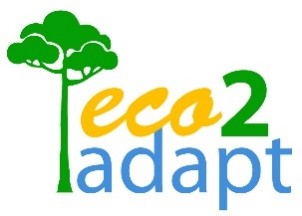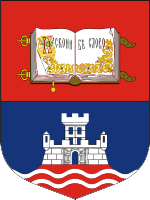
Consortium Develops Nature-Friendly Solutions To Protect Forests Against Climate Change Whilst Maintaining Their Economic Value Across Europe and China
A #HorizonEurope Research and Innovation action project funded by the #EuropeanUnion and coordinated by #INRAE.
Horizon, Europe’s key funding programme for #research and #innovation, funds the development of #Ecosystem-based Adaptation for #forestry. Led by INRAE, the #eco2adapt project gathers 31 European and Chinese world-class expert organisations on forestry, ecology and climate change. Together, they will design portfolios of adapted management solutions and innovative bioeconomic and governance models to enhance the resilience of tomorrow’s forests. The solutions developed in eco2adapt will also ensure the right #trees are planted in the right place for the right purpose so that forest, foresters and local communities will all benefit. Using a diversity of species and techniques that can ‘cover all the options’ in an uncertain future climate, resilient #forestecosystems will be protected for tomorrow’s generations.
Changemaking to create a new future for forests
The European Union pledges to #plant 3 billion trees by 2030, but Chinese foresters have shown that a‘one size fits all’ afforestation approach simply does not work. Tree plantations can be destroyed through climatic events such as storms or drought, or be attacked by pests and pathogens, leaving a devastated landscape and despairing local communities. Resilient forest management requires locally tailored solutions. Using an #Ecosystem-based Adaptation (EbA) approach that considers biodiversity and Nature’s benefits to humans, eco2adapt will consider not only the trees, but the gain for the entire social-ecological system, so that local communities can contribute to safeguarding tomorrow’s multifunctional forests.
EbA offers cost-effective and #sustainable solutions for national and regional #adaptation strategies. But understanding societal perception and acceptability is necessary before EbA solutions can be implemented by both citizens and governments. Through innovative #DecisionTheatres, eco2adapt will work with all levels of stakeholders to understand what drives their decision-making and to create changemaking models and policies for resilient forest management, business and governance.
Smart Tools to Create and Manage Resilient Forests
The eco2adapt consortium will develop digital tools using cutting-edge #artificialintelligence methods to harness information from #BigData in forestry archives around the world. Combined with sophisticated modelling to predict the effects of management on forest dynamics in a changing climate, and how this will affect services and contribution to people, information will be used to create portfolios of climate-resilient species and management methods that can be accessed via a free Smartphone application. The application will help forest managers choose the best species/mixture of species to plant depending on local conditions, climate projections and community needs.
Tailored innovation through Living Labs in climate hotspots
eco2adapt will co-create solutions for resilient forests together with stakeholders in 15 #climatehotspots in Europe and China. #LivingLabs will be set up in each hotspot to allow collaborations between multiple partners operating at regional or landscape levels and to coordinate experiments. eco2adapt’s Living Labs have been selected to cover a broad range of forest and climate type, ranging from boreal and temperate conifer forests to tropical rainforest. Animal and plant biodiversity will be monitored through citizen science, remote sensing and experiments. EbA-style management will be tested at experimental sites and the best solutions demonstrated at lighthouse sites, with EbA training given to stakeholders. Living Lab activities will allow stakeholders to learn about new solutions across Europe and China, including novel forest insurance and business mechanisms, certification schemes and policy updates.
Shaping a legacy for resilient forests at all levels of society
As changemaking takes time, eco2adapt will create a legacy for future scientists, stakeholders, practitioners, students and communities. eco2adapt will develop activities and materials for all levels of society, from children to retirees, and foresters to policy-makers. Digital tools developed and data created will be accessible and will evolve after the project ends and made #openaccess and interactive via a #KnowledgeBase. A direct link will be made between the project’s knowledge base and the #UnitedNationsDataHub, so that policy-makers can constantly access forestry and #ecosystemservice data. This will strengthen partnerships between academics, practitioners and policy-makers and create a long-term legacy for tomorrow’s generations.
For further information, please see: https://eco2adapt.hub.inrae.fr/
For any press inquiries, please send a message to: eco2adapt-info@groupes.renater.fr
Project Details
Acronym: eco2adapt
ID no: 101059498
Budget: EUR 9.8 million
Start date: 1 September 2022
Duration: 60 months
Number of partners: 31 (+2 affiliated entities)
Number of countries: 14 (including 3 associated countries)
Please find the complete list of partners below:
- INRAE – National Research Institute for Agriculture, Food and Environment (France)
- CIRAD – Centre de Coopération Internationale en Recherche Agronomique pour le Développement (France)
- UEF – University of Eastern Finland
- GCF– Global Climate Forum e.V. (Germany)
- EFI – European Forest Institute (Finland)
- IRD – Institut de Recherche pour le Développement (France)
- UM – Université de Montpellier (France)
- ALUFR – Albert Ludwigs Universität Freiburg (Germany)
- AUA – Geoponiko Panepistimion Athnon (Greece)
- NBSI – Nature Based Solution Institute (Sweden)
- BITCOMP (Finland)
- UNIFI – Universita degli Studi di Firenze (Italy)
- InNovaSilva (Denmark)
- IMSI – Institut za Multidisciplinarna Istrazivanja (Serbia)
- FFC – Suomen Metsakeskus (Finland)
- VMU – Vytauto Didziojho Universitetas (Lithuania)
- MPG – Max-Planck Gesellschaft zur Förderung der Wischenschaften e.V. (Germany)
- CTFC – Consorci Centre de Cienca i Tecnologica Forestal de Catalunya (Spain)
- UNITBV – Universitatea Transilvania din Brasov (Romania)
- INRAE-Tranfert SAS (France)
- ONF – Office National des Forêts (France)
- Green Estates (Finalnd)
- PBN – Preferred by Nature (Denmark)
- ETHZ – Eidgenoessische Technische Hochschule Zürich (Switzerland)
- CAF – Chinese Academy of Forestry (China)
- ICBR – International Centre for Bamboo and Rattan (China)
- ZAFU – Zhejiang A&F University (China)
- SCBG-CAS – South China Botanical Garden, Chinese Academy of Sciences (China)
- PKU – Peking University (China)
- CSUFT – Central South University of Forestry and Technology)
- FORRE – ForrestRe Limited (United Kingdom)
Views and opinions expressed are, however, those of the author(s) only and do not necessarily reflect those of the European Union or European Research Executive Agency. Neither the European Union nor the granting authority can be held responsible for them.






